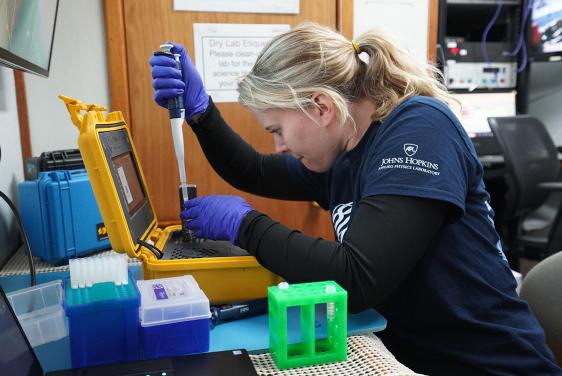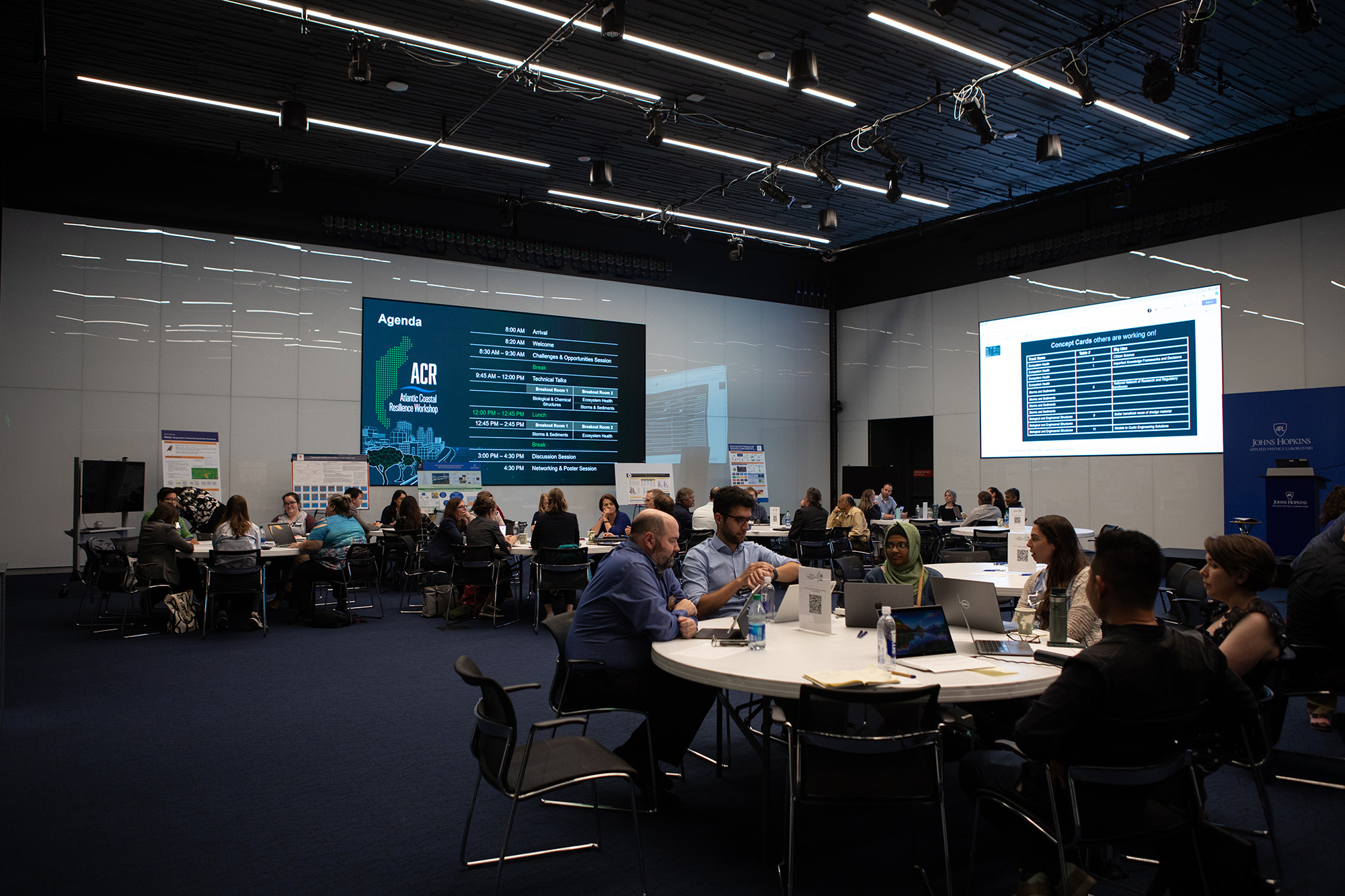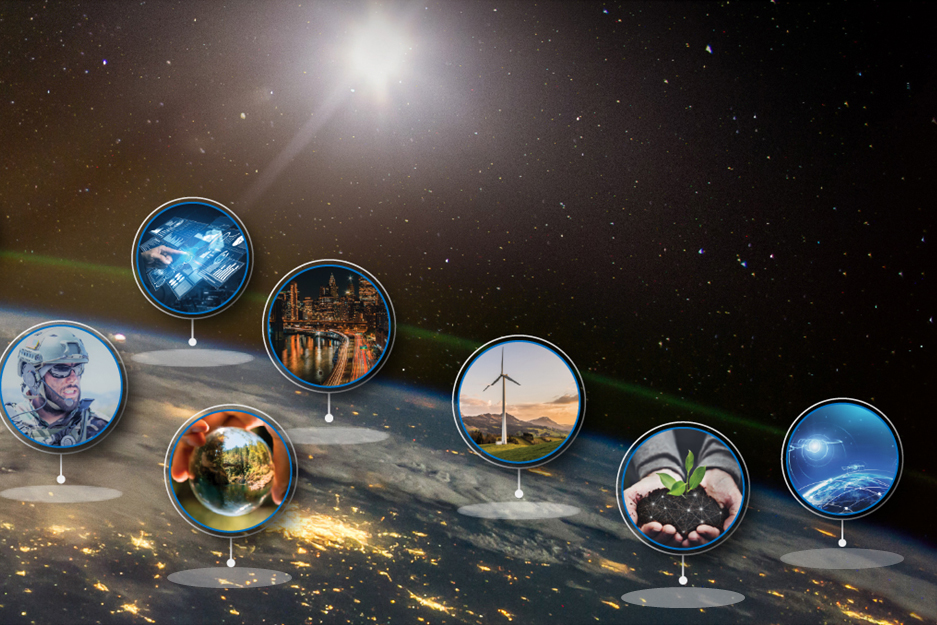About the Event
In May 2024, APL hosted the Atlantic Coastal Resilience Workshop, bringing together close to 100 members of academia, industry, government, and nonprofits to forge a path forward in strategic development of coastal resilience in the Atlantic region. By building up our coastlines against the rapidly approaching, catastrophic effects of climate change, our coastal ecosystems, infrastructure, and communities will be able to “bounce back” from disruptive events, which is of emerging importance for dense cities, military bases and critical infrastructure, and essential ecosystem resources.
The goals of this event were to provide a platform for sharing technical progress in the area of coastal resilience that can be further developed with the Atlantic regional community, build a community for continued engagement and future research collaboration, and identify the near-term challenges and opportunities in Atlantic coastal resilience based on the expert technical presentations and discussions held at the workshop.
Panel Overview
The day started with a morning panel session focused on identifying sponsor challenges in the coastal resilience space. Government representatives participating on the panel shared their perspective on where the challenges currently exist. The remainder of the day’s technical track talks were structured into three categories, and attendees had the opportunity to partake in discussions and brainstorming activities pertaining to these categories.
- Biological and Engineered Structures – focused on research that addresses methods of protecting the shoreline to reduce storm impact, including natural barriers, biohybrid shorelines, engineered structures, as well as on implementation strategy and policy considerations
- Storms and Sediment – explored research on storm severity and frequency, erosion, flooding, and impacts on resources and infrastructure, as well as policies for adaptation and recovery
- Ecosystem Health – discussed research that addresses coastal ecosystem responses to emerging climate challenges and how these environmental changes impact critical water systems, microbial and geochemical health, and ecological disruption
Key Takeaways
- The field of coastal resilience encompasses a vast and complex threat space that requires careful consideration.
- The impacts of climate change introduce a high level of uncertainty, making it challenging to predict and prepare for coastal resilience challenges.
- Coastal resilience challenges are often caused by a combination of extreme events, such as storms and floods, and the cumulative effects of longer-term processes, such as erosion and sea-level rise.
- Interacting threats, including factors such as poor soil quality and increased rainfall, can exacerbate coastal resilience issues and make them more difficult to address.
- Although there is a growing range of solutions available for coastal adaptation, these solutions are often costly and complex and can have unintended consequences that must be carefully managed.
- A systems-based approach is necessary to develop efficient and effective solutions that can provide lasting protection for coastal communities and ecosystems.
- To advance coastal resilience, we need to pursue two key strategies: first, integrating traditional and artificial intelligence models to better understand coastal changes, threats, and adaptation measures, and second, continuing to innovate and develop new technologies that can support coastal resilience efforts.
Related Work

Reversing the Loss of Coral Reefs

Enlisting eDNA to Understand Ecosystems


